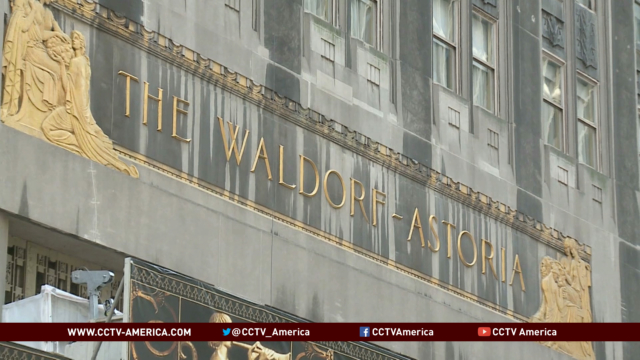New visa rule changes for Chinese visitors to the U.S. could boost Manhattan’s home-buying market which could have a trickle-down effect on the New York City’s businesses. CCTV America’s Liling Tan reported this story from New York.

Manhattan, already a favorite destination for Chinese visitors and investors, could experience a boom in its lucrative real estate sector.
With new visa rules that allow Chinese students to stay in the U.S. for five years instead of one, their parents have more reason to buy homes here.
“A vast percentage of Chinese want their children to go to universities in the United States. And now that this visa has been extended, they’re considering middle school more than they were before. They could buy an apartment 10 years in advance because they’re hoping this is going to be occupied by their child who is going to school,” luxury real estate advisor Royce Pinkwater said.
Pinkwater deals in residential units ranging from $5 million-$150 million.
“They will become more comfortable in the United States. They’ll see it more and more as home. They’ll partake more in the restaurant culture here. They’ll get into more furniture-buying, and more art-buying, and they’ll put them in their home here,” Pinkwater said.
Business and short-term visas have also been extended and are valid for 10 years instead of one. The extensions boost commercial real estate as well, such as China’s Anbang Insurance Group’s recent purchase of New York’s iconic Waldorf Astoria hotel for almost $2 billion.
The visa extensions were part of a deal between the U.S. and China to improve economic ties. The U.S. hopes the move will add $85 billion annually to the American economy, and support more than 400,000 American jobs by the year 2021.
But Sean King, former senior advisor on Asia for the U.S. Department of Commerce, isn’t convinced the visa rules will change business decisions.
“I don’t think anyone is going to make a deal, or make an investment in the United States because now they have longer to activate their visa,” King said. “I mean I can go to Canada tomorrow but it doesn’t mean I’m going to buy an oilfield in Saskatchewan. But maybe it removes an irritant that otherwise would have been there that could have gotten in the way of some deals.”
 CGTN America
CGTN America
